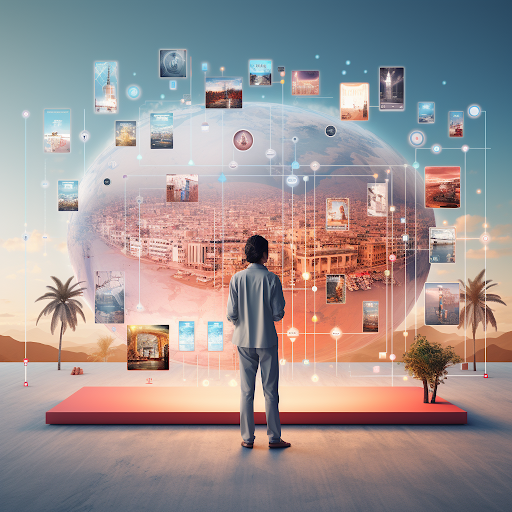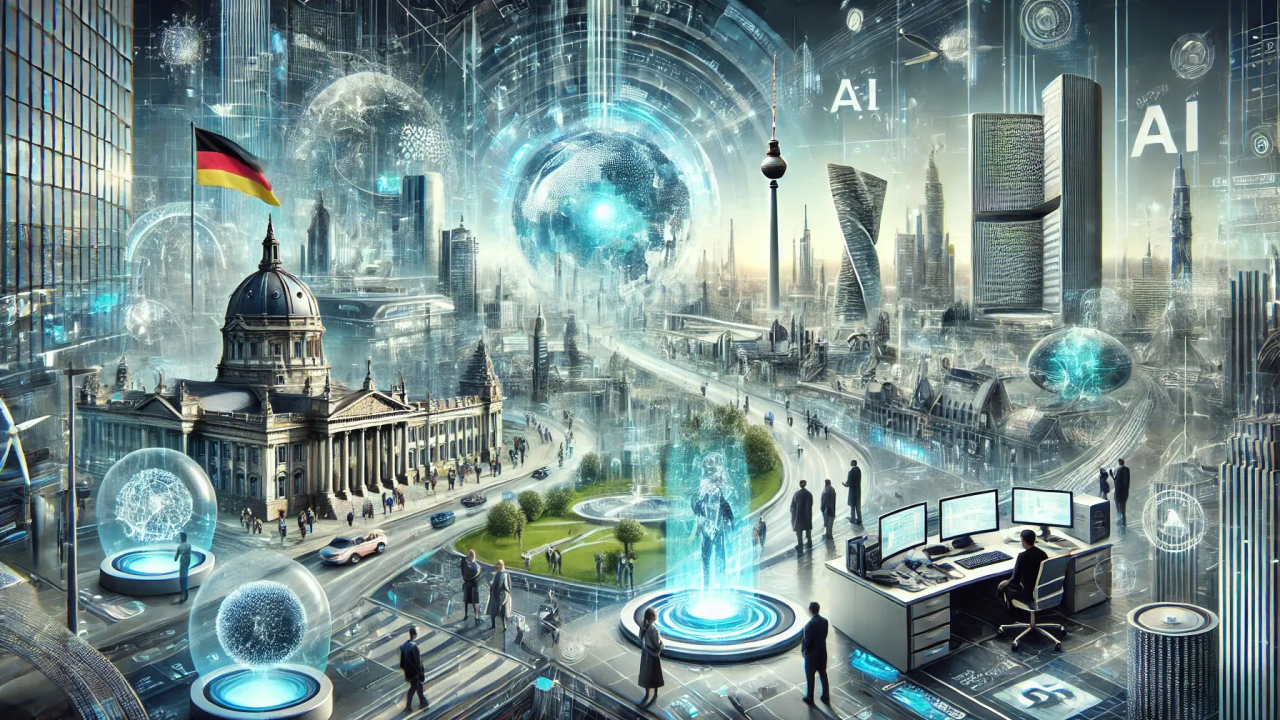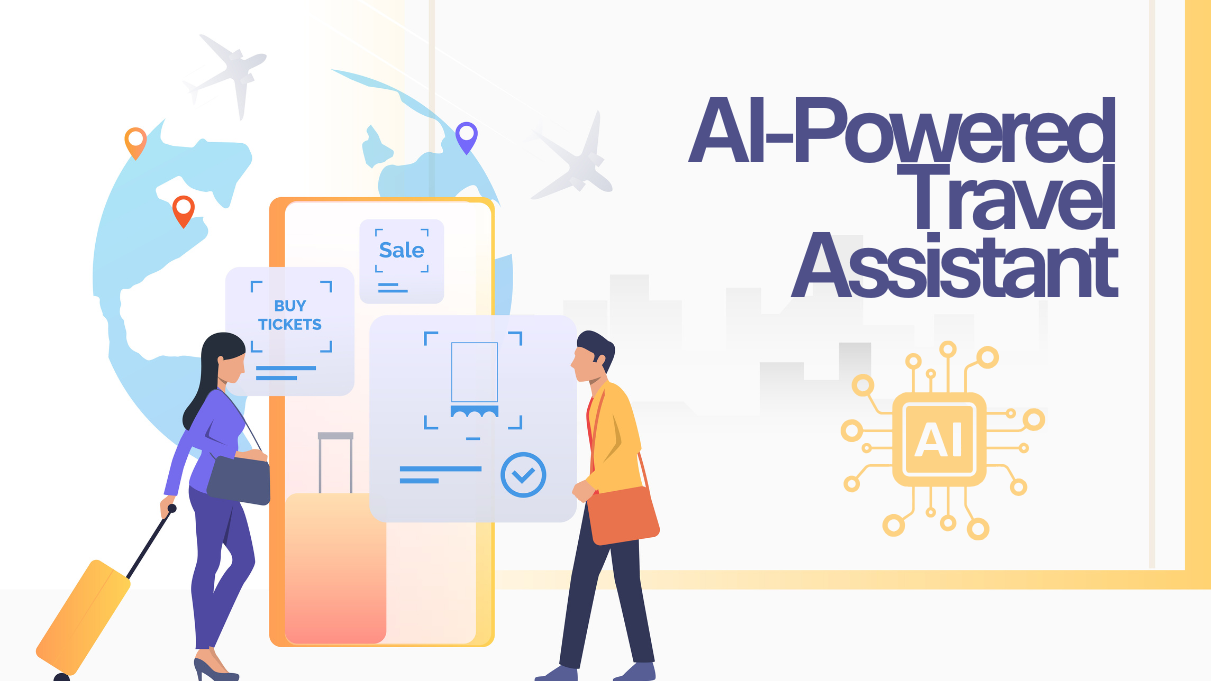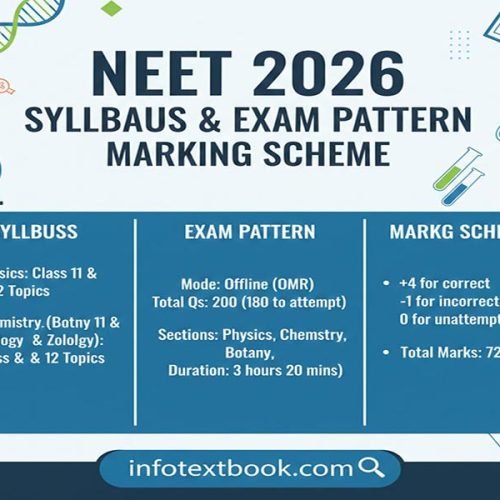Table of Contents
ToggleAI Guide to Germany 2025 Smart Travel, Culture Insights & Personalized Tips

1. Introduction
Traveling to Germany in 2025 is easier than ever, thanks to technology-driven travel solutions. From planning itineraries to exploring hidden cultural gems, the AI guide to Germany is transforming the way tourists experience the country. With smart recommendations, real-time updates, and personalized insights, AI ensures that every journey is smooth, efficient, and memorable.
2. Why Use an AI Guide to Germany?
Germany is known for its rich history, modern cities, and breathtaking landscapes. However, first-time travelers often struggle with planning routes, understanding local customs, and managing time. An AI guide to Germany solves these challenges by offering:
Smart itinerary planning based on traveler interests.
Cultural and historical insights about landmarks.
Real-time updates on weather, traffic, and local events.
Multilingual support for easier communication.
3. Smart Travel Planning with AI
With AI-powered apps and digital assistants, visitors can create personalized itineraries in minutes. These guides suggest the best places to visit in cities like Berlin, Munich, Hamburg, and Cologne. They also recommend train routes, hotel options, and even restaurants based on dietary preferences. Using an AI guide ensures that your trip to Germany is well-organized and stress-free.
4. Cultural Insights and Local Experiences
One of the unique benefits of using an AI guide to Germany is access to authentic cultural knowledge. AI tools provide information on German traditions, festivals like Oktoberfest, local cuisines such as bratwurst and pretzels, and historical sites including the Berlin Wall and Neuschwanstein Castle. By combining technology with cultural insights, travelers can enjoy an experience that goes beyond sightseeing.
5. Personalized Travel Tips for Visitors
AI does more than plan—it adapts to your preferences. Whether you’re a solo traveler, a family, or an adventure seeker, AI assistants provide customized suggestions. Examples include:
Best shopping areas for fashion enthusiasts.
Scenic hiking trails in the Bavarian Alps.
Family-friendly museums and parks.
Nightlife recommendations in Berlin.
This level of personalization makes every trip unique.
6. Benefits of AI-Powered Travel Assistance
The adoption of AI in tourism has several benefits:
Convenience: 24/7 access to travel support.
Time-Saving: Instant itinerary creation and updates.
Cost-Effective: Finding the best deals on hotels, flights, and tours.
Safety: Real-time alerts on travel disruptions
Introduction

Introduction
Germany has always been one of Europe’s most captivating destinations, known for its rich cultural heritage, stunning landscapes, and vibrant cities. From the fairy-tale castles of Bavaria to the historic charm of Berlin, the country offers an endless mix of history, art, modern innovation, and natural beauty. As more travelers explore Germany in 2025, technology is playing a key role in making journeys smoother, smarter, and more enjoyable. This is where the AI guide to Germany emerges as a game-changer, helping visitors plan and experience their trips in ways that were once unimaginable.
Traditionally, travelers relied on guidebooks, travel agents, or scattered online resources to plan their vacations. While these methods provided useful information, they often lacked real-time updates, personalization, and cultural depth. Today, artificial intelligence is transforming travel planning by offering tailored suggestions, instant answers, and intelligent insights. The AI guide to Germany combines the best of technology with authentic cultural experiences, giving tourists a powerful tool to maximize their time and enjoyment.
One of the major challenges for international visitors is navigating the variety of experiences Germany has to offer. Whether it’s deciding between exploring Berlin’s buzzing nightlife, visiting the Black Forest for outdoor adventures, or attending world famous festivals like Oktoberfest, travelers often struggle to fit everything into a single itinerary. An AI guide to Germany eliminates this stress by creating smart travel plans based on individual preferences whether you’re a history lover, a foodie, an art enthusiast, or an adventure seeker.
Moreover, language barriers, transportation complexities, and real-time changes in schedules can create confusion for first-time visitors. AI-powered tools simplify these aspects by providing multilingual support, up to date travel alerts, and even digital translation assistance. Instead of spending hours researching routes or ticket options, travelers can rely on AI to instantly provide the best recommendations and solutions.
In 2025, AI is not just about convenience it’s about creating meaningful travel experiences. By blending technology with local culture, these digital guides enable travelers to go beyond typical tourist spots and discover hidden gems that define Germany’s charm. Whether it’s finding the perfect café in Munich, uncovering lesser-known museums in Hamburg, or exploring scenic trails in the Bavarian Alps, AI ensures that every journey is uniquely personal.
Why Use an AI Guide to Germany?

Why Use an AI Guide to Germany?
Germany is one of the most visited countries in Europe, known for its rich cultural heritage, advanced infrastructure, and beautiful landscapes. From exploring the historic streets of Berlin to experiencing the fairytale castles of Bavaria, travelers often struggle with planning their trip in a way that balances time, budget, and authentic experiences. This is where an AI guide to Germany becomes an invaluable tool.
Traditional travel planning usually requires hours of research through guidebooks, blogs, or social media. While helpful, these sources can be overwhelming and sometimes outdated. An AI-powered travel guide eliminates this problem by offering real-time information tailored to each traveler’s needs. For example, if you are visiting Munich during Oktoberfest, AI can recommend the best times to attend, nearby accommodations, safety tips, and even restaurant suggestions based on your preferences.
Another reason to use an AI guide to Germany is the ability to access cultural and historical insights instantly. Instead of relying solely on human tour guides or scattered online articles, AI provides context about landmarks, museums, and traditions as you explore. Whether you are standing in front of the Brandenburg Gate or strolling through Cologne Cathedral, the AI can share stories, facts, and hidden details that enhance your understanding.
Language barriers are another challenge faced by international tourists. Many visitors struggle with German phrases for transportation, dining, or asking for directions. AI powered tools solve this issue by offering instant translation and even voice-assisted communication. This feature makes navigating German cities much more comfortable, especially for first time visitors.
Finally, an AI guide to Germany is highly adaptive. It doesn’t just recommend popular tourist attractions but also personalizes suggestions based on your interests whether you love art galleries, local markets, hiking in the Black Forest, or nightlife in Berlin. This personalization ensures that no two itineraries are the same, making your trip unique and memorable.
In short, using AI as your travel companion brings convenience, cultural depth, and confidence to your journey. With real time updates, translation features, and personalized planning, AI guides transform the way travelers experience Germany, ensuring that every moment is optimized for discovery and enjoyment
Smart Travel Planning with AI

Smart Travel Planning with AI
Travel planning often takes weeks of research finding the right cities to visit, comparing hotels, booking train tickets, and checking for cultural events. In 2025, Artificial Intelligence is changing this completely. With an AI guide to Germany, travelers can organize every part of their journey in just a few clicks, saving both time and effort.
AI powered platforms analyze traveler preferences, budgets, and schedules to create highly personalized itineraries. For example, if someone loves history, the AI will suggest iconic sites such as the Berlin Wall Memorial, Neuschwanstein Castle, and the Cologne Cathedral. If food is the priority, AI tools can recommend authentic German restaurants, local markets, and even hidden street food corners. This level of smart planning ensures that no two itineraries look the same.
One of the greatest strengths of AI is real-time adaptability. Plans often change due to weather, transport delays, or unexpected closures. An AI guide to Germany can instantly adjust the schedule, replacing a canceled train route with an alternative or suggesting indoor activities during rainy days. Travelers no longer need to stress about last minute changes AI does the problem solving for them.
Another advantage is cost optimization. AI assistants scan hundreds of travel websites simultaneously to find the best deals on hotels, flights, and transportation. Instead of manually comparing prices, travelers receive suggestions tailored to their budget, ensuring maximum value for money.
Language is another barrier that AI helps overcome. Built in translation features allow tourists to communicate easily with locals, read menus, or navigate train stations. This makes the experience smoother, especially for first-time visitors.
Finally, an AI guide to Germany goes beyond logistics it introduces travelers to local culture. From traditional festivals like Oktoberfest to contemporary art exhibitions in Berlin, AI ensures that visitors don’t just see the country, but truly experience it.
In short, AI transforms travel planning from a stressful process into an exciting, personalized journey. With smart recommendations, real time updates, and cultural insights, travelers can focus on enjoying their adventure while technology takes care of the details.
Cultural Insights and Local Experiences

Cultural Insights and Local Experiences
Germany is not just about its modern cities and efficient infrastructure it is a country filled with cultural treasures, centuries old traditions, and local experiences that make every journey unique. Travelers who explore Germany through traditional guides often miss the finer details that make the trip memorable. This is where an AI guide to Germany makes a difference, helping visitors uncover authentic experiences that blend history, lifestyle, and local charm.
One of the most fascinating aspects of German culture is its festivals. Oktoberfest in Munich is world-famous, but smaller regional festivals such as Karneval in Cologne or the Christmas Markets in Dresden bring just as much joy and tradition. An AI powered guide can provide real-time festival schedules, tips for attending like a local, and recommendations on what food and drinks to try. This allows tourists to experience German celebrations in their most authentic form.
Cuisine is another essential part of German life. Beyond the popular bratwurst, pretzels, and schnitzel, each region offers specialties that are deeply tied to local traditions. For example, Bavaria is known for Weißwurst, while Berlin has the iconic Currywurst. With the help of an AI guide to Germany, travelers can discover hidden restaurants, authentic breweries, and family-run bakeries that are often overlooked in generic travel itineraries.
Germany’s cultural richness is also reflected in its architecture and art. From medieval castles like Neuschwanstein to modern landmarks such as the Berlin TV Tower, every city has a story to tell. AI tools can give visitors context about each site, explaining historical importance and fun facts instantly. Moreover, museums and art galleries across cities like Berlin, Dresden, and Frankfurt offer world-class exhibits, which AI can recommend based on personal interests whether it’s classical art, modern design, or interactive science.
Local experiences extend beyond sightseeing. Interacting with locals, joining guided walking tours, or attending regional workshops allows visitors to truly understand the German way of life. An AI guide to Germany enhances this by suggesting cultural exchange programs, language tips, and even local etiquette advice to ensure respectful and enjoyable interactions.
In short, cultural insights and local experiences in Germany are best enjoyed with the right mix of tradition and technology. By using AI, travelers go beyond the surface, embracing the real essence of German life.
Personalized Travel Tips for Visitors

Personalized Travel Tips for Visitors
Traveling to a new country is exciting, but it can also feel overwhelming without proper planning. Germany, with its mix of modern cities, medieval towns, and scenic landscapes, offers endless opportunities for exploration. This is where technology plays a major role in helping travelers make the most of their journey. A smart and reliable AI guide to Germany provides tailored travel tips designed for every kind of visitor—whether you are traveling solo, with family, or in a group.
For first-time travelers, the AI assistant can suggest essential attractions such as Brandenburg Gate in Berlin, Cologne Cathedral, and the Black Forest. It can also provide real-time updates on the best times to visit, ticket availability, and transportation routes. Families can receive customized itineraries highlighting kid-friendly museums, amusement parks, and safe public parks, ensuring an enjoyable trip for all ages.
Adventure enthusiasts will benefit from hiking and cycling recommendations across the Bavarian Alps or along the Rhine Valley. Food lovers, on the other hand, can rely on the AI system to discover hidden local restaurants, authentic German beer gardens, and street markets featuring regional delicacies. Shopping fans are guided toward famous districts in Munich and Berlin, offering both luxury brands and traditional crafts.
One of the greatest advantages of using an AI guide to Germany is the personalization it provides. Unlike generic travel guides, AI adapts to individual preferences, offering suggestions based on budget, interests, and even dietary restrictions. This ensures that travelers spend less time searching and more time enjoying their experiences.
Moreover, the AI powered travel assistant helps visitors make eco friendly choices by recommending sustainable transportation options, green hotels, and local experiences that support cultural preservation. Travelers who value unique experiences can also get off the beaten path tips like visiting lesser-known castles, small Bavarian villages, or local art galleries.
In short, the AI guide to Germany serves as a personal travel companion, blending convenience with cultural insight. By offering real-time, tailored suggestions, it transforms an ordinary trip into a memorable adventure, ensuring that every traveler experiences Germany in their own special way.
Benefits of AI Powered Travel Assistance

Benefits of AI Powered Travel Assistance
In today’s fast paced world, travelers want convenience, accuracy, and personalization in every aspect of their journey. That’s where AI-powered travel assistance comes in, revolutionizing how people plan and experience their trips. From booking flights to finding hidden cultural gems, artificial intelligence ensures a seamless and enjoyable travel experience.
One of the biggest advantages of AI assistance is convenience. Travelers can access information 24/7, whether they need real-time flight updates, hotel recommendations, or guidance on local transport. Instead of browsing through dozens of websites, an AI assistant quickly delivers the best options suited to individual needs. For example, using an AI guide to Germany, visitors can instantly find the fastest train connections, the best rated restaurants nearby, or even weather updates before heading out for the day.
Personalization is another powerful benefit. AI collects data on traveler preferences such as food choices, adventure level, or cultural interests and tailors recommendations accordingly. This ensures that no two travel experiences are the same. Someone interested in history might receive suggestions about museums and castles, while a foodie could get curated restaurant lists featuring authentic German cuisine. By relying on an AI guide to Germany, tourists can enjoy an itinerary that feels uniquely crafted for them.
Cost savings also play a major role. AI tools analyze large amounts of data to find the best deals on flights, hotels, and tour packages. They can track price drops, recommend budget friendly alternatives, and help travelers avoid unnecessary expenses. At the same time, AI enhances safety, offering real-time alerts about delays, emergencies, or local disruptions so visitors can make quick adjustments.
Lastly, AI travel assistance enhances cultural engagement. Instead of simply showing directions, AI tools provide historical context, festival details, and local customs. Travelers not only know where to go but also understand why the destination is important. With an AI guide to Germany, tourists gain deeper insights into traditions like Oktoberfest, historic landmarks such as the Berlin Wall, and regional specialties across different cities.
In conclusion, AI powered travel assistance combines convenience, cost-effectiveness, personalization, and cultural depth. It transforms travel from a stressful task into a smooth, enjoyable journey where every step is guided intelligently and meaningfully.
Final Thoughts

Final Thoughts
Germany has always been a dream destination for travelers, offering a mix of rich history, stunning architecture, cultural festivals, and modern cities. In 2025, the rise of artificial intelligence makes exploring this country even more convenient and personalized. With the support of an AI guide to Germany, tourists can plan their journeys with ease, gain instant insights about attractions, and discover experiences that match their individual interests.
Unlike traditional travel methods, AI driven tools provide real time updates, multilingual support, and customized recommendations that save both time and money. Whether it’s finding the quickest train route in Berlin, exploring Bavarian castles, or enjoying authentic German cuisine, AI ensures travelers get the best out of every moment.
What truly sets an AI guide apart is its ability to merge technology with culture. It does not just tell you where to go, but also explains the history behind landmarks, the meaning of traditions, and the best times to visit. For travelers seeking efficiency, safety, and authentic experiences, the AI guide to Germany is an indispensable companion.
As tourism continues to evolve, AI will remain at the heart of smarter, stress free, and more meaningful travel.
FAQs on AI Guide to Germany 2025
Q1. What is an AI guide to Germany?
An AI guide to Germany is a digital travel assistant that uses artificial intelligence to provide personalized itineraries, travel tips, and cultural insights.
Q2. How can an AI guide help me plan my trip to Germany?
It creates customized travel plans, recommends attractions, suggests restaurants, and provides real-time updates on transport, events, and weather.
Q3. Is the AI guide to Germany available online or as an app?
Yes. Most AI travel guides are available as mobile apps, web platforms, or integrated features in travel booking websites.
Q4. Can the AI guide work without the internet in Germany?
Some features like offline maps and saved itineraries work without internet, but real-time updates require connectivity.
Q5. Does the AI guide to Germany provide cultural insights?
Yes. It offers information on German traditions, local festivals, cuisines, and the history of popular landmarks.
Q6. Can I use the AI guide in multiple languages?
Most AI travel assistants support multilingual options, making it easier for non German speakers to navigate.
Q7. Is the AI guide useful for budget travelers?
Absolutely. It helps find affordable accommodations, travel deals, and cost saving routes.
Q8. Can families use the AI guide to Germany?
Yes. AI guides provide family friendly recommendations such as parks, museums, and safe travel routes.
Q9. Does the AI guide suggest hidden or lesser known attractions?
Yes. Along with famous sites like Berlin and Munich, it also suggests offbeat places for unique travel experiences.
Q10. Is using an AI guide to Germany safe?
Yes. It enhances safety by offering real time alerts on disruptions, transport issues, or emergency information.






